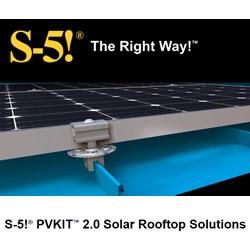TÜV SÜD at Hannover Messe 2013: Approval of wind turbines in the USA and Canada
"Field labelling" is a flexible process applied in the USA and Canada for the approval of wind turbines. At the leading trade fair Energy held by Hannover Messe, TÜV SÜD presents field labelling as a complementary addition to the extensive portfolio of wind services (Hall 13, Stand C48).
The USA and Canada still have no specific industrial standards in place for large-scale wind turbines. These systems are classified as industrial machinery and require approval under the National Electrical Code and further UL standards in the USA or the Canadian Electrical Code and further CSA standards in Canada. "On this basis, certification of wind turbines is rather inflexible and does not meet the specific requirements demanded of these systems", comments Frank Etz, project manager at TÜV SÜD Product Service GmbH.
Field labelling offers an alternative to this relatively rigid procedure. The process reviews the general requirements imposed by the Occupational Safety and Health Administration (OHSA) on occupational safety as well as the more specific product standards of NFPA 79 in the USA and SPE-1000 in Canada. Approval is granted upon the agreement of the local Authorities Having Jurisdiction (AHJ), which are responsible for inspecting conformity with these standards, which is generally documented in the form of a recognised certificate of conformity issued by an independent testing laboratory.
"This makes field labelling a particularly interesting prospect for European manufacturers of wind turbine components", explains Etz. The process enables individual elements such as generators, inverters and pitch systems to be inspected and certified to valid US and Canadian standards at their place of manufacture – such as Germany. "The application of this process and the partnership between TÜV SÜD Product Service and TÜV SÜD America enable manufacturers to optimise the time and costs involved in their approval process", confirms the TÜV SÜD expert. In addition, inspection by a recognised inspection body and the corresponding certification mark, including all underlying documentation, ensure legal compliance. "Field labelling enables us to support our clients in obtaining internationally recognised type certification as well as in gaining official approval of their systems in the USA and Canada", adds Dr Martin Webhofer, Head of the Certification Body Wind Turbines at TÜV SÜD. "By combining type certification and field labelling, they can reduce their costs of launching products on the market still further."
TÜV SÜD Product Service will also present an interesting alternative form of approval in the field of control cabinet engineering. The Panel Shop Program offers an efficient option of combining statutory certification requirements in the USA and Canada with the market demand for bespoke products.
TÜV SÜD will present its full portfolio of premium services for offshore and onshore wind power at the leading trade fair Wind at Hannover Messe (Hall 27, Stand H26).
Featured Product

